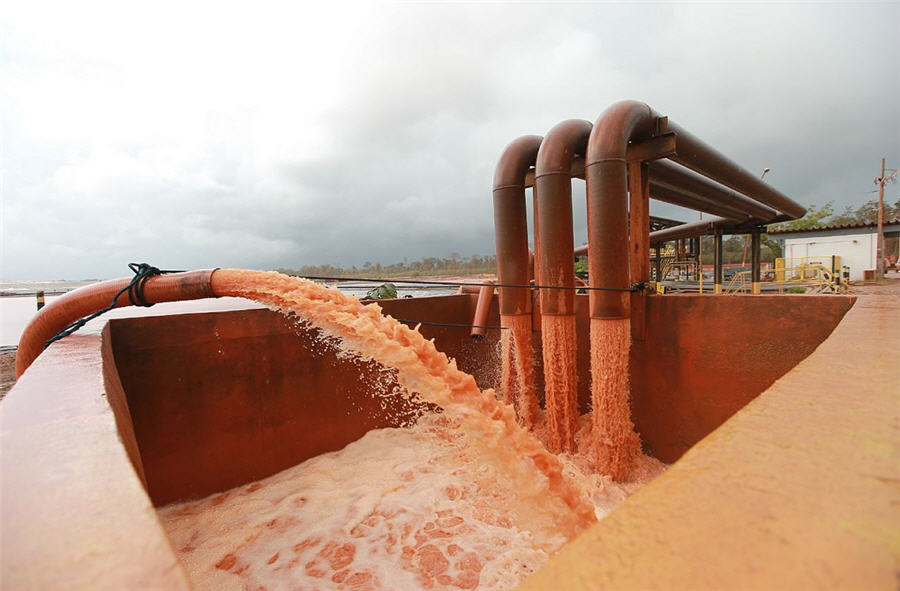Norsk Hydro to resume Brazil’s Alunorte output at half capacity

OSLO/RIO DE JANEIRO Oct 9 – Norsk Hydro said on Tuesday it has won permits from Brazilian authorities to restart operations at half capacity at its Alunorte alumina refinery, the world’s largest, though employment for its 4,700 workers is not guaranteed over the long-term.
Alunorte is expected to be able to ramp up to 50 percent production within two weeks.
The resumption is the latest twist in a months-long environmental dispute with Brazilian authorities, after the metals maker admitted to making unlicensed emissions of untreated water during severe rains in February.
As a result, the company was ordered to slash output by half at the refinery. But last month Hydro appeared set to resume full operations after it inked two deals with Brazilian authorities.
Last week, the company announced it would shut the plant as well as the related Paragominas bauxite mine and lay off 4,700 workers since the refinery’s waste deposit area was close to full capacity. Hydro added that the ongoing dispute is preventing it from using a new facility.
Hydro said that late on Monday it won permission to use technology that would alleviate this situation.
“Alunorte is expected to be able to ramp up to 50 percent production within two weeks,” Hydro said. At full capacity the plant can produce some 6.4 million tonnes of alumina, or 10 percent of the world’s capacity outside China.
“Hydro continues its dialog with all relevant authorities to bring Alunorte back to full production and normalize its operations in Brazil,” it added.
But John Thuestad, Hydro’s vice president for bauxite and alumina, said the move did not guarantee long-term employment for the 4,700 workers.
“We have to reassess and see how likely it is to get the plant back [to full capacity], and based on that, we will then have to go back and have a look at whether we should permanently run the plant differently,” he said, when asked about the jobs.
The move to shutter operations last week came after Hydro received a preliminary report from a consultancy in September suggesting the existing waste deposit area would have sufficient capacity to receive waste through May 2019.
That raised questions for Brazilian Para state regulators, who said Alunorte told them that a separate report on Sept. 28 pointed to a probable dam break at the deposit site if it continued putting waste there.
Thuestad said surprises were part of the industry.
“It is a little bit like, you say you go to your doctor and he tells you are absolutely well and then he goes and gets the blood sample…and then all of a sudden you have a serious illness,” he said, adding that the company should have said its risk committee was working on a separate report in tandem.
“It would have been better if it had been communicated earlier that they were doing this risk analysis,” he said. “It was a miscommunication that has been corrected.”
Alunorte’s output, enough to produce more than 3 million tonnes of aluminium per year, is sold to metal plants around the world, including Hydro’s own facilities in Norway and Brazil, and the shutdowns have pushed global metal prices higher.
The Albras smelter, a joint venture between Hydro and Nippon Amazon Aluminium and located next to the alumina plant, will be able to maintain aluminium output at an annual rate of 230,000 tonnes per year, half its capacity, in line with announcements first made in April.
(By Terje Solsvik and Alexandra Alper)
{{ commodity.name }}
{{ post.title }}
{{ post.date }}




Comments